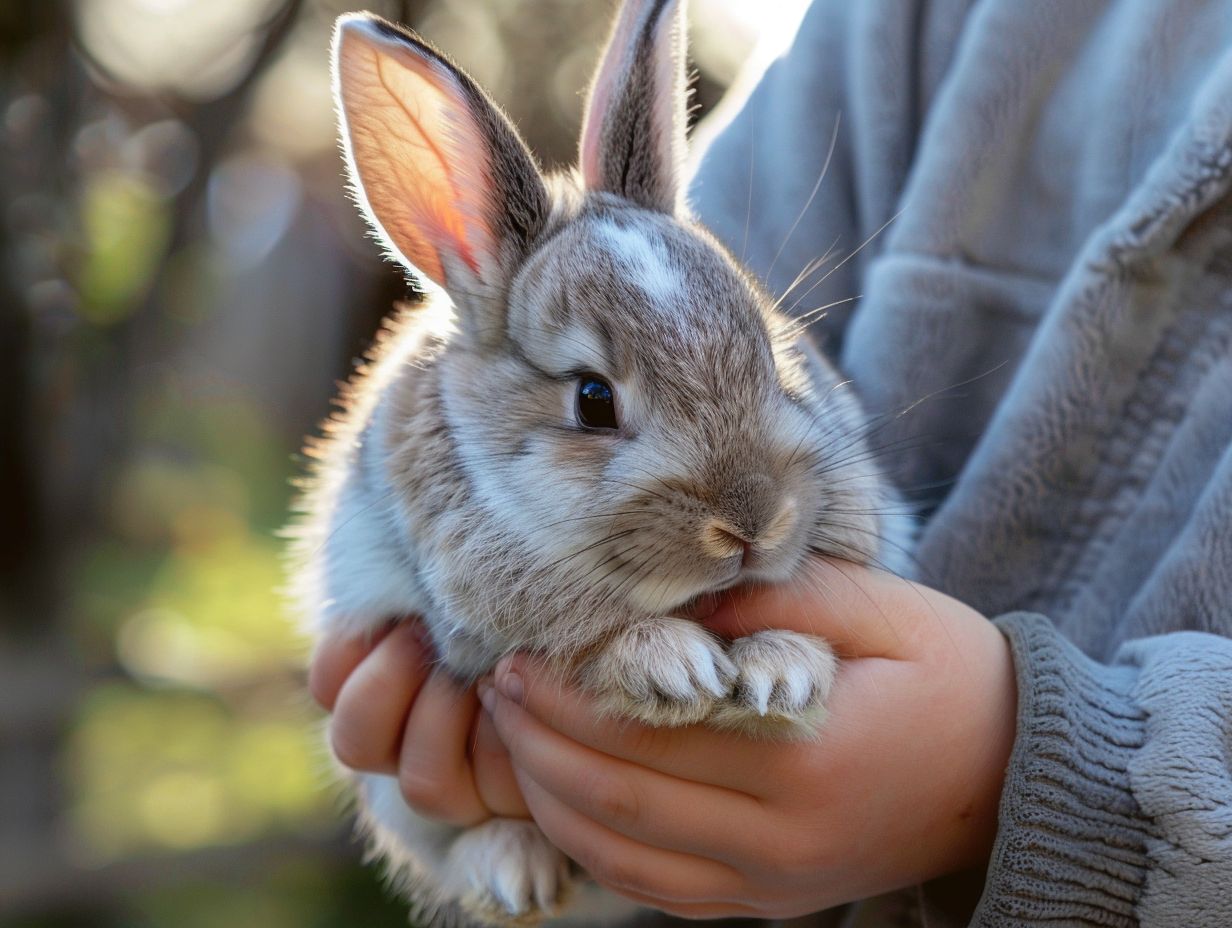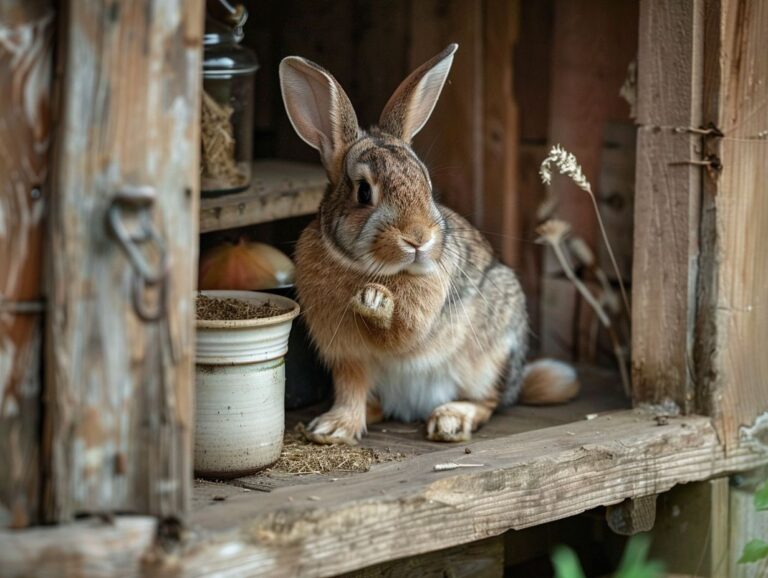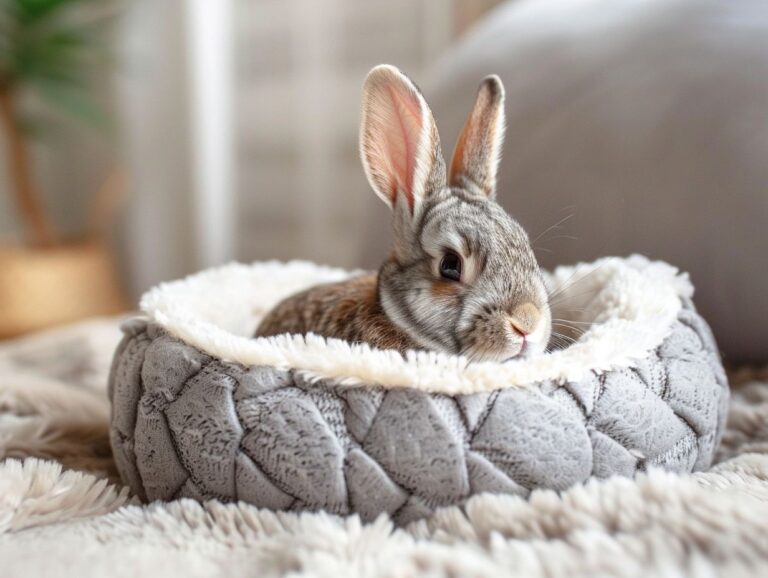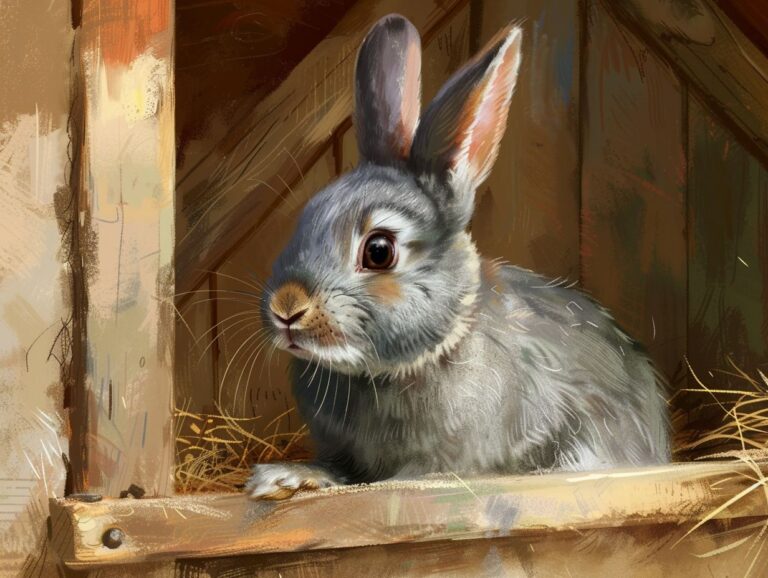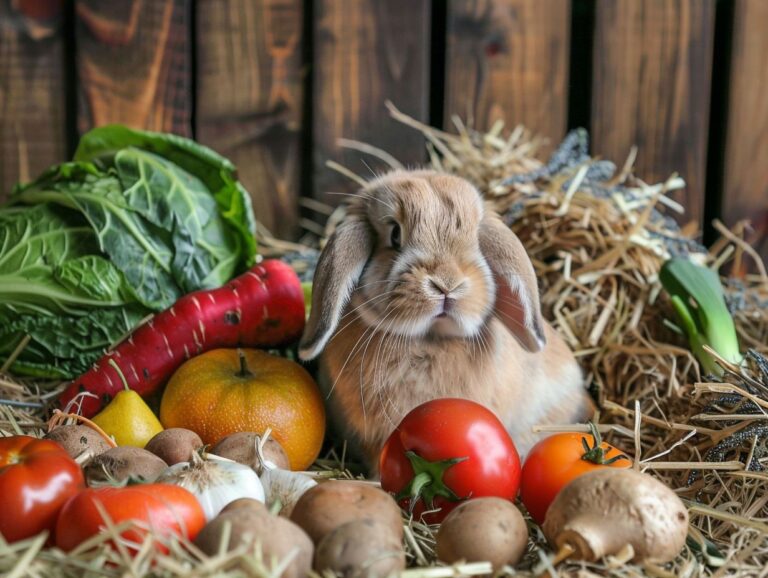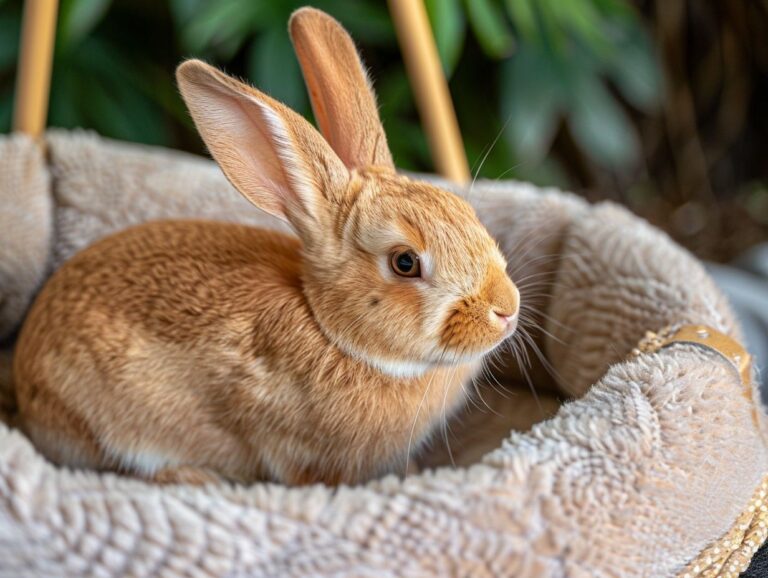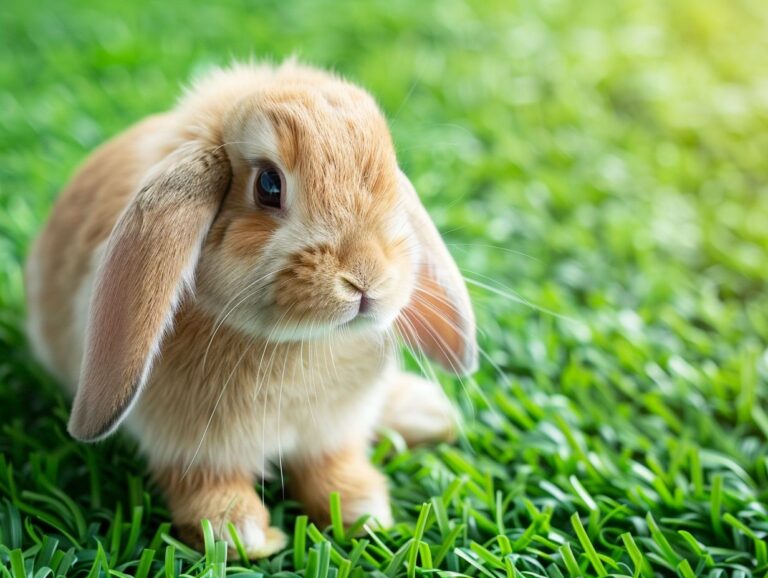Polish Rabbits As Pets: Care, Diet, and Health For Small Breeds
Are you thinking about getting a Polish rabbit as a pet?
Small breed rabbits like Polish rabbits are known for their unique characteristics and personality traits.
In this article, we will explore the average size of small breed rabbits, the best diet for Polish rabbits, basic care requirements, common health issues, and more.
From the types of hay to include in their diet to the signs of dental problems, GI stasis, and how to groom them, we’ve got you covered.
Let’s dive in and learn all about caring for these adorable small breed rabbits!
Key Takeaways:
What are Polish Rabbits?
Polish rabbits, known for their small size, are a breed that originated in Belgium in the 1600s.
These adorable rabbits were initially bred for their fur and meat quality, with a focus on their compact build and fast growth rate. Over time, they gained popularity for their friendly demeanor, making them excellent pets. Polish rabbits are easily recognizable by their distinctive round faces, short ears, and glossy coats. Their small size and lively personalities make them perfect for both indoor and outdoor living environments.
What are the Characteristics of Small Breeds?
Small breed rabbits, such as Polish rabbits, are known for their gentle, loving, and intelligent nature, making them ideal cuddle-bunnies for families and 4-H kids.
These petite rabbits often exhibit friendly and sociable behavior, enjoying human interaction and affection. Their playful antics and curious nature can bring joy and entertainment to their owners.
- Small breed rabbits are generally easy to handle and train, responding well to positive reinforcement. They can form strong bonds with their owners, seeking out attention and companionship.
Despite their small size, they are often full of energy, hopping around and exploring their surroundings with enthusiasm. Some small breeds, like the Netherland Dwarf, are particularly known for their bold and outgoing personalities.
What is the Average Size of a Small Breed Rabbit?
On average, small breed rabbits like Polish rabbits weigh between 2 to 6 pounds and have proportional body length, bone structure, and overall compact body appearance.
These small breed rabbits typically measure about 8 to 11 inches in length and have delicate, fine bones that contribute to their graceful appearance. Their bodies are compact and well-proportioned, with short legs and rounded features. The small size of these rabbits makes them ideal for indoor living spaces, as they do not require excessive room to move around comfortably. Despite their diminutive size, small breed rabbits like Polish rabbits are known for their energetic and lively nature, bringing charm and joy to their owners.
What are the Common Personality Traits of Small Breed Rabbits?
Small breed rabbits exhibit common personality traits such as being gentle, loving, and intelligent, making them excellent companions for individuals seeking affectionate and interactive pets.
These small furry friends are known for their playful and curious nature, often hopping around exploring their surroundings with enthusiasm. They are quick learners and enjoy mental stimulation activities like puzzle toys and obstacle courses. Small breed rabbits have a remarkable ability to form strong bonds with their owners, showcasing their loyalty and devotion.
What is the Best Diet for Polish Rabbits?
The best diet for Polish rabbits includes a balanced mix of hay, fresh vegetables, fruits, and high-quality pellets to ensure they receive the necessary nutrients for their health and well-being.
Dietary requirements form the cornerstone of a rabbit’s health, with hay being an essential component due to its fiber content that aids in digestion and maintaining proper dental health. Fresh vegetables provide vital vitamins and minerals, while fruits offer a tasty treat in moderation. High-quality pellets are crucial as they contain necessary proteins and other nutrients to complement the rabbit’s diet. It is imperative to monitor portions and quality to prevent health issues and ensure overall well-being for your furry friend.
What Types of Hay Should be Included in their Diet?

Timothy hay is a staple for Polish rabbits, providing essential fiber to support proper digestion and prevent gastrointestinal issues. Alongside this, fresh veggies like dark leafy greens, carrots, and bell peppers offer a spectrum of important vitamins and minerals, aiding in immune function and overall vitality. Fruits like apples and berries can serve as occasional treats, adding a touch of natural sweetness while supplying antioxidants and additional nutrients. By diversifying their diet with these elements, Polish rabbits can maintain optimal health and well-being.
What Vegetables and Fruits are Safe for Polish Rabbits to Eat?
Polish rabbits can safely consume a variety of vegetables such as leafy greens, carrots, and bell peppers, along with fruits like apples and berries as part of their balanced diet.
Regarding vegetables, options like spinach, kale, and broccoli are great choices for Polish rabbits due to their high fiber content and essential vitamins. Cucumbers and zucchinis can add hydration to their diet. Fruits like bananas and papayas provide natural sugars and necessary nutrients. It’s important to incorporate a mix of colors and textures to ensure a well-rounded diet for your furry friend.
How Much Pellets Should be Given to Polish Rabbits?
When feeding pellets to Polish rabbits, it is recommended to provide a measured amount based on their weight and nutritional requirements to prevent overfeeding and maintain a healthy diet.
Feeding guidelines for pellets in the diet of Polish rabbits play a crucial role in their overall well-being. It is advised to offer approximately 1/4 to 1/2 cup of pellets per day, depending on the rabbit’s size and activity level. This controlled portion helps in ensuring that the rabbits receive essential nutrients without excessive calorie intake. Nutritional balance is key, as pellets alone may not provide all the necessary vitamins and minerals, so complementing their diet with hay and fresh vegetables is highly recommended. By monitoring their intake and adjusting portions as needed, you can promote optimal health and prevent obesity in Polish rabbits.
What are the Basic Care Requirements for Polish Rabbits?
Ensuring the basic care requirements for Polish rabbits involve regular grooming, providing a suitable living space, and assessing their compatibility with family dynamics to promote their health and well-being.
Regarding grooming, Polish rabbits have a dense coat that requires regular brushing to prevent matting and maintain a healthy fur condition. Their living environment should include a spacious cage with ample room for movement, cozy bedding, and proper ventilation to ensure their comfort and well-being.
Integrating Polish rabbits into a family setting involves gentle handling, socialization, and supervision when interacting with children or other pets to prevent any stress or conflicts. By meeting these care requirements consistently, Polish rabbits can thrive in a loving and nurturing environment.
How Often Should Their Cage be Cleaned?
Cleaning the cage of Polish rabbits should be a routine task done regularly to maintain hygiene, prevent odor buildup, and ensure a clean and comfortable living environment for the rabbits.
Regular cage cleaning is vital in preventing bacteria and parasites that can harm the rabbits. Ensuring cages are well-aerated and sanitized helps minimize the risk of diseases and infections. Learn more about mini lop rabbits as pets.
Grooming the rabbits’ fur regularly not only keeps it clean and free from mats but also allows for early detection of any health issues. A thorough cleaning routine should include removing old bedding, scrubbing the cage with pet-safe cleaners, and providing fresh food and water daily. By establishing a consistent cleaning schedule, you can promote the health and well-being of your Polish rabbits.
What Type of Exercise is Recommended for Small Breed Rabbits?
Providing ample opportunities for exercise through activities like hopping, running, and exploring within a spacious hutch or designated play area is crucial to maintaining the physical health and mental stimulation of small breed rabbits like Polish rabbits.
Exercise plays a pivotal role in preventing obesity and ensuring proper muscle development in these petite companions. Small breed rabbits, due to their size, greatly benefit from activities that mimic their natural behaviors in the wild.
- Consider introducing tunnels, climbing platforms, and chew toys to encourage physical movement and mental engagement.
- Quality time spent interacting with your rabbit during play sessions can strengthen the bond between you and your furry friend, as well as provide essential socialization.
What is the Best Way to Groom a Polish Rabbit?

Regarding brushing your Polish rabbit, it’s essential to use the right tools. Opt for a soft-bristled brush or a comb designed for small animals to gently remove any loose fur and prevent tangles. Brushing should be done in the direction of hair growth to avoid discomfort for your furry friend.
Regular grooming not only keeps your rabbit looking neat and tidy but also promotes their overall well-being. It allows you to check for any signs of skin issues, parasites, or abnormalities that may require attention.
What are the Common Health Issues for Small Breed Rabbits?
Small breed rabbits like Polish rabbits may be prone to health issues such as malocclusion, GI stasis, ear mites, and flystrike, requiring vigilant monitoring and prompt veterinary care when necessary.
Malocclusion, a common issue in small breed rabbits, occurs when their teeth do not align correctly, leading to overgrowth that hampers their ability to eat. Watch out for symptoms like drooling, difficulty eating, and weight loss.
GI stasis, another significant concern, manifests with reduced appetite, bloating, and lethargy. To prevent these issues, provide a balanced diet rich in hay, fresh vegetables, and limited pellets. Regular dental check-ups and exercise can also aid in maintaining dental health and preventing GI complications.
What are the Signs of Dental Problems in Polish Rabbits?
Signs of dental problems in Polish rabbits, such as malocclusion, may manifest as difficulty eating, drooling, weight loss, and changes in appetite, indicating the need for immediate veterinary attention to address oral health issues.
Early detection of these symptoms is crucial in maintaining the overall well-being of your furry companion. If left untreated, dental issues can lead to more severe complications, affecting not only the rabbit’s oral health but also its overall quality of life.
Regular dental check-ups by a qualified veterinarian are essential to monitor and manage any developing problems. These professionals can provide appropriate treatment, including dental filing or extractions, to alleviate discomfort and prevent further deterioration.
How Can Overgrown Teeth be Prevented in Small Breed Rabbits?
Preventing overgrown teeth in small breed rabbits involves providing adequate chew toys, a balanced diet, and regular dental check-ups to maintain proper dental health and prevent malocclusion issues.
Chew toys play a crucial role in a rabbit’s dental hygiene by providing them with an opportunity to naturally wear down their teeth. Opt for toys made from safe, non-toxic materials such as untreated wood or hard plastic. It is essential to offer a variety of textures to encourage chewing. Ensure your rabbit’s diet includes plenty of hay, which helps promote natural chewing and prevents dental problems. Regular veterinary check-ups are vital to catch any dental issues early and prevent overgrown teeth.
What are the Signs of GI Stasis in Polish Rabbits?
GI stasis in Polish rabbits can present with symptoms like reduced or absent fecal output, lethargy, bloating, and decreased appetite, signaling a potentially serious digestive health issue that requires immediate veterinary attention.
GI stasis, also known as gastrointestinal hypomotility or ileus, is a condition where the digestive tract slows down or ceases to function properly.
This can lead to a buildup of gas and fluid in the intestines, causing discomfort and pain for Havana rabbits.
Recognizing the signs early is crucial, as untreated GI stasis can result in severe complications such as dehydration, gut obstruction, and even death. For more information on caring for Himalayan rabbits as pets, check out this guide for small breeds.
Veterinary intervention is essential to diagnose the underlying cause and provide prompt treatment, which may include fluid therapy, pain management, and medication to stimulate gut motility.
How Can GI Stasis be Treated in Small Breed Rabbits?
Treating GI stasis in small breed rabbits like Polish rabbits may involve veterinary interventions such as fluid therapy, pain management, gut motility drugs, and supportive care measures to address the underlying digestive concerns and restore gastrointestinal function.
Fluid therapy plays a crucial role in replenishing lost electrolytes and fluids in rabbits suffering from GI stasis, aiding in rehydration and supporting their overall health. Veterinarians may administer pain management medications to alleviate discomfort and encourage the rabbit to resume normal activities.
Gut motility drugs, such as prokinetics, stimulate intestinal movements, helping to propel food through the digestive tract and prevent further complications. Alongside medications, providing a suitable diet rich in fiber and encouraging regular exercise can aid in restoring proper gastrointestinal function.
Silver rabbits as pets are a popular choice for those looking for small breeds with specific care, diet, and health needs.
Frequently Asked Questions
What are the characteristics of Polish rabbits?
Polish rabbits are small breed rabbits typically weighing between 2 to 6 pounds. They have a compact, round body shape and short, upright ears. They come in a variety of colors, including white, black, blue, chocolate, and lilac.
How should I care for my Polish rabbit?
Polish rabbits require regular grooming and nail trimming to maintain their coat and claws. They also need plenty of exercise and social interaction to keep them happy and prevent boredom. It is important to provide them with a clean and spacious living environment.
What should I feed my Polish rabbit?
A balanced diet for a Polish rabbit includes unlimited access to hay, fresh vegetables, and a small amount of pellets. Treats such as fruits should be given sparingly to avoid obesity. Fresh water should always be available.
Can I keep a Polish rabbit indoors?
Yes, Polish rabbits can be kept indoors as long as they have enough space to exercise and receive proper care. It is important to bunny-proof the living space to prevent any accidents or damage to your home.
What health concerns should I look out for in Polish rabbits?
Polish rabbits are generally healthy, but they can be prone to dental issues due to their small size and compact skull. It is important to monitor their teeth growth and provide them with plenty of hay to promote chewing and maintain good dental health.
At what age do Polish rabbits reach maturity?
Polish rabbits typically reach maturity at around 4 to 6 months of age. It is recommended to spay or neuter them at this age to prevent any unwanted behaviors and health issues later in life.

